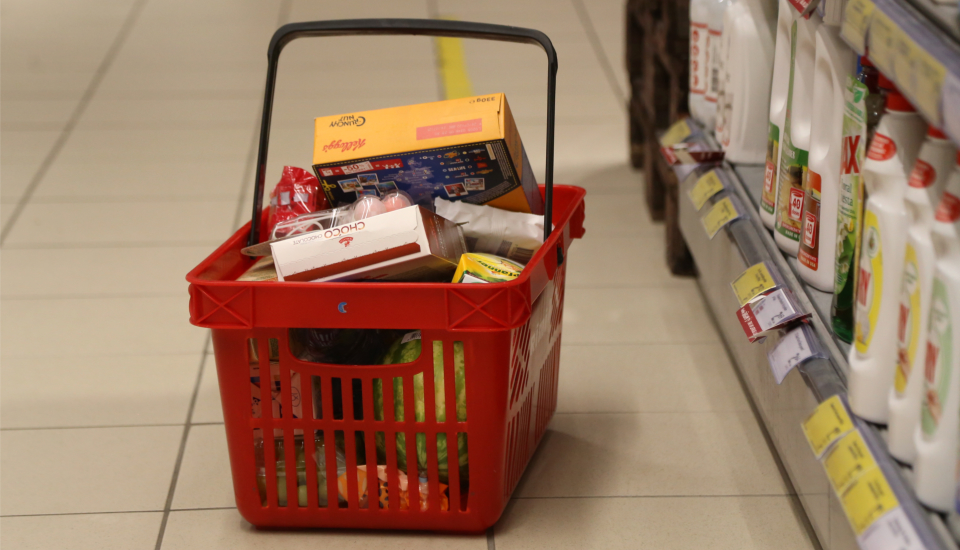However, officials are keen to stress that this will not be a wholesale rollback of strict epidemiological measures, the overwhelming majority of which remain in place.
"As the Covid-19 pandemic threatens everyone's health and life, both during Easter and after, everyone must adhere to the basic principles of safe living - disinfection of hands and surfaces, ventilation of premises, physical distancing from others, and the use of masks at work and in crowded places. Efforts should also be made to take advantage of remote services, online shopping, and non-cash payments," a government press release stresses.
Here is the official summary of what changes and what does not from April 7. Changes in education are outlined in this separate story.
Face-to-face meetings
Both private and public events will be banned also after Easter. However, from 7 April, outdoor marches and pickets will be allowed for up to 10 people, subject to epidemiological safety measures. Two households (up to 10 people) will be able to meet privately outdoors. The current norm that up to ten people from two households are allowed to gather at a funeral and an emergency baptism ceremony, keeping a distance from others and using a mouth and nose covering, will remain in force.
Requirements for trade
As before, retail sales outlets and market pavilions will continue to provide at least 25 square meters per visitor and organize a one-way flow of customers. Where carts, baskets, or shopping bags are available, their number must not exceed the number of people allowed in the store and entry into the store without them is prohibited.
Points of sale should be visited alone, except for children under the age of 12 and people in need of assistance. At points of sale, both indoors and outdoors, staff and visitors must use a mouth and nose covering.
Subject to epidemiological safety requirements, on-site sales will no longer be restricted by product lists from 7 April. The Cabinet of Ministers took into account the assessment of experts that the full resumption of operations of shopping centres poses too great a risk of gathering, and thus a risk of an increase in morbidity. Therefore, only grocery and hygiene stores, pharmacies, optical stores, florists, bookstores, and press outlets will be able to operate in shopping centers/malls with an area of more than 7,000 square meters.
Stores in large shopping centers offering other product groups via distance ordering (e.g. pay online and collect in person) will no longer be able to open. However, service providers in shopping centres will be able to continue operating as before.
From 7 April, regardless of the assortment of goods and retail space, all stores having a separate entrance and not located in a shopping centre with a sales area of more than 7,000 square meters will be able to open their doors to customers. In smaller shopping centres all points of sale will be able to work subject to merchants and customers complying with safety requirements.
From 7 April, the organization of street trade without entertainment events, such as themed parties and attractions, will also be allowed. Up to 20 merchants may participate in such fairs and the organizer must ensure a distance of at least two meters between the stands, the flow of visitors and the demarcation of the territory.
Catering
The Cabinet of Ministers approved the safety requirements that both caterers and visitors will have to comply with in the field of public catering when the epidemiological situation in the country will be safe enough to be able to resume outdoor catering areas. Until then, however, catering establishments can continue to operate providing food and drinks for takeaway only.
Public transport
Rules remain essentially the same. Instructions available on public transport must be observed also after Easter so that occupancy does not exceed 50%. It is recommended to avoid use of public transport as far as possible opting for alternative means of transportation, for example, walking or riding a bicycle.
Future changes
It is worth noting that at its March 26 meeting, the Cabinet of Ministers also considered what decisions might be needed if the incidence of Covid-19 increases rapidly. Plans provide for strict restrictions on movement, allowing people to go to work and for an hour long walk no more than three kilometres from their place of residence. Only people who ensure the continuity of urgent and important work or work in production and construction would be allowed to work on site. Stricter restrictions would also apply to points of sale and service providers.
On the other hand, improvements in the epidemiological situation would lead to a gradual loosening of restrictions under the four-stage plan outlined in this other story.




























